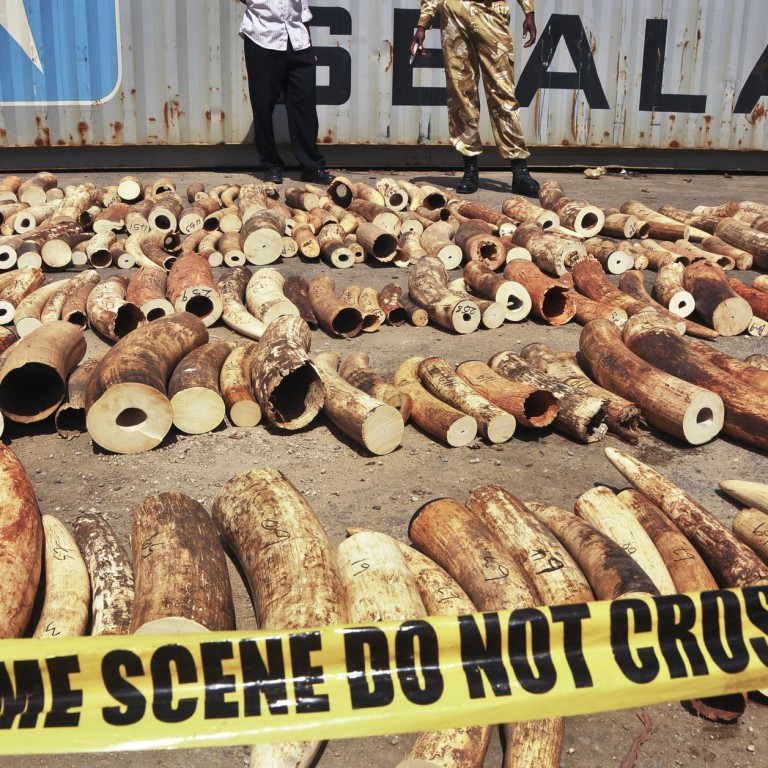
Kenya extradites alleged illegal ivory kingpin to China
Kenya extradites alleged kingpin as further arrests made on mainland
The alleged head of an ivory-smuggling ring has been arrested in Kenya and extradited to the mainland, the first time a Chinese national suspected of involvement in the illegal trade in wildlife has been caught overseas, according to Xinhua.

He was brought back to China the next day.
Two other suspects were also arrested entering the mainland last month. The cases are still under investigation.
The arrests were the first major success of Operation Cobra II, a campaign between 28 countries, including China, the United States and South Africa, to crack down on the illegal trade in protected species of wildlife.
Shi Jianbin, the China head of Traffic, a global network that monitors the trade, said the operation had uncovered a few hundred cases and a similar number of suspects had been arrested. About 60 per cent of the cases involve China.
"This reflects the reality that China is one of the countries where the illegal wildlife trade is most rampant," he said. "It's also a result of the tough measures China's law enforcement agencies have taken against wildlife crimes."
China is the largest market for illegal ivory and Kenya one of the main sources, even though elephant hunting is banned in the east African country.
Beijing showed it is taking the issue seriously by publicly destroying more than six tonnes of ivory last month.
The investigation began after 1,226 ivory beads 1.8cm to 2cm in diameter and weighing a total of 8.77kg were found in the luggage of a man surnamed Zheng at an airport in Shenyang in November.
His suitcase contained layers of sealed transparent bags labelled as nuts, which he said he was asked to buy as presents.
Zheng said he had nothing to declare and even opened one of the bags and offered nuts to customs officers.
They noticed one of the bags at the bottom of the suitcase was much heavier than the rest and suspected it contained ivory.
Further investigation traced the beads back to Xue in Kenya, where he is said to have bought, transported and sold ivory to the mainland for some time.
He allegedly paid Chinese mules 5,000 yuan (HK$6,350) to 10,000 yuan a trip to smuggle small amounts of ivory into China, and investigators claim his girlfriend, surnamed Li, helped them pass through customs in Kenya and also delivered the goods to buyers in China.
Zheng and Li were the other two arrested suspects.
Meng Xianlin , deputy director of the Endangered Species Import and Export Management Office, told Xinhua that fighting the illegal wildlife trade required greater co-operation between nations.
"The illegal wildlife trade involves many parts and many places," Shi said.
"It's not a problem one country or one region can solve."
